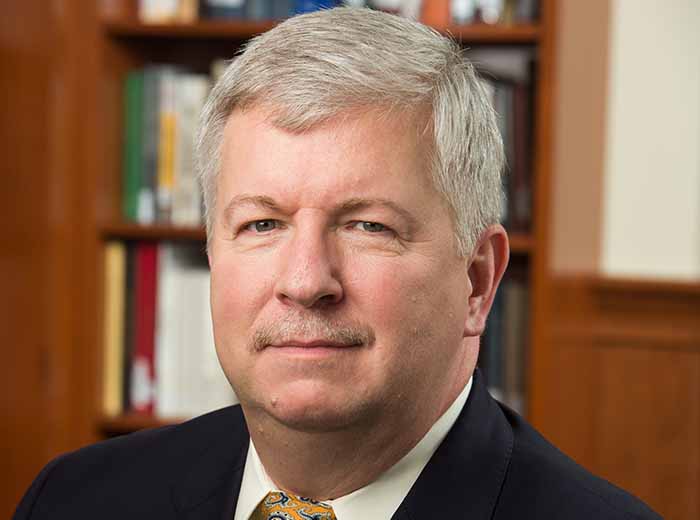 By Dr. Grady Batchelor, Associate Dean, Center for Teaching and Learning, APUS; Elizabeth Gray, Faculty Training Developer & Coach, Center for Teaching and Learning, APUS; and Dr. Nancy Heath, Assurance System Writer, Assessment and Accreditation, APUS
By Dr. Grady Batchelor, Associate Dean, Center for Teaching and Learning, APUS; Elizabeth Gray, Faculty Training Developer & Coach, Center for Teaching and Learning, APUS; and Dr. Nancy Heath, Assurance System Writer, Assessment and Accreditation, APUS
This week, May 16-22, 2016, the APUS Center for Teaching and Learning (CTL) celebrates International Coaching Week (ICW). According to the International Coach Federation, “ICW educates the public about the value of working with a professional coach and acknowledges the results and progress made through the coaching process.” To this end, American Public University System (APUS) developed a comprehensive coaching and mentoring initiative, which includes the following components:
- APUS Certified Professional Coach/Mentor program (CPCM) consisting of three five-week courses designed and developed to provide the knowledge, skills, abilities and experience required to effectively coach/mentor faculty members. All are aligned with the Board Certified Coach and International Coach Federation’s Certified Professional Coach competencies and ethics to position the program for internal/external delivery, recognition, and certification/accreditation.
- Forum Engagement Assessment process consisting of a reporting framework delivered by CTL’s Instructional Specialist team in each school. The framework provides a tool to help focus efforts on the courses and faculty where coaching can have the greatest impact on teaching excellence and increasing student and faculty engagement.
- Core Learning Group Mentoring Community of Practice project consisting of asynchronous and synchronous facilitated group and team sessions. The goal of these sessions is to align efforts associated with student success, increasing retention and persistence, addressing key performance indicators, and challenging faculty to develop new knowledge, skills and abilities.
Our collective goal is to enhance student and faculty engagement in the classroom to maximize student satisfaction, increasing persistence and, ultimately, graduation rates. Professional coaching has been shown to have a positive impact on cultivating leaders, improving communication, increasing productivity and fostering a positive work environment. It empowers our CTL coaches to model engagement for our faculty members, one-to-one and in groups, as they ask thought-provoking questions designed to inspire teaching excellence and increased faculty-to-student engagement.
There are five coaching competencies that we are emphasizing in the CPCM program as critical to the process of leading through coaching. Applying these competencies will help our faculty become more efficient and effective, increase faculty and student engagement, and inspire teaching excellence.
- Set goals. Every session begins with a goal set by the person being coached (the “client”). The coach facilitates goal discovery by the client. The goal-setting process requires a coach to ask the right questions to clarify, align, and focus the client’s attention on an appropriate goal to achieve the desired results.
- Focus on awareness. A coach asks thought-provoking questions that encourage the client to engage to reflect on his/her current situation, thoughts, values and beliefs to gain a deep sense of self-awareness. A focus on self-awareness allows the client to draw conclusions that are more accurate and assists the client to make better-informed decisions.
- Conduct curious conversations by asking empowering questions. A coach engages the client with intentionally thought-provoking questions that help the client to zero in on issues, situations, challenges, reasons for change, desired results, actions and more. A coach helps the client generate solutions and strategies while analyzing options, empowering them to have a greater understanding of themselves and the current situation.
- Plan for action. Building on the client solutions, strategies and options, a coach helps them plan for action to achieve their desired results through identifying and planning for the “who, what, where, why, when and how.” The coach also assists in identifying potential obstacles toward achieving the goal and potential responses to these anticipated challenges.
- Hold accountable. Ultimately, holding the client accountable is what sets coaching apart from other helping roles and professions (i.e. counseling, therapy). A coach holds the client accountable for what the client commits to doing and on the timeline the client has identified as appropriate. Being held accountable is central to the client’s success.
An emphasis on leading with coaching competencies is just the most recent in APUS’s continued efforts to foster an academic environment that promotes student and faculty engagement, enhances student learning, reinforces existing retention efforts, and embodies teaching excellence. Using a coaching framework and an ongoing series of “curious conversations,” APUS faculty are empowered to become an active and integral part of the university’s most significant initiatives. At the same time, the coaching approach will solidify and bind together various stakeholders to ensure a collaborative and inclusive approach to supporting teaching and learning at APUS.
Dr. Grady Batchelor oversees APUS’s Center for Teaching and Learning and its coaching and mentoring initiative. Previously, he was Director of Faculty for the APUS Schools of Health Sciences and Business. Prior to joining APUS, Grady served for more than a decade as president of a regional economic development authority, chairman of the Interstate 22 Development Commission, and Chairman of the Northwest Alabama Workforce Development Council. He is a professional coach and currently serving as vice president of the International Coach Federation Gulf Coast Chapter.
Beth Gray is a faculty training developer and coach for the APUS Center for Teaching and Learning. She previously served as Executive Assistant to the APUS president and CEO. She holds a B.A. in History and Political Science from Randolph-Macon Woman’s College and a M.A. in both Global History and Political Science from American Public University.
Dr. Nancy Heath is a writer and researcher for the APUS Assessment and Accreditation Department. Her previous work included policy analysis and medical outcome research for a wide array of surgical organizations, during which she earned the Certified Association Executive designation. Nancy is a licensed mental health provider in the state of Illinois and holds special certification in relationship counseling. In 2013, Nancy was awarded the Trend and Innovation Award for her work at APUS in bringing relationship expertise to a wide audience through targeted blogs. She received an undergraduate degree in psychology from Yale University and a Ph.D. from Purdue University in Child Development and Family Studies.











